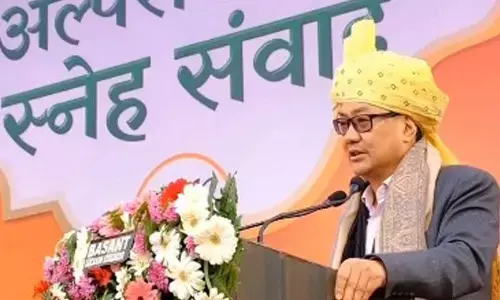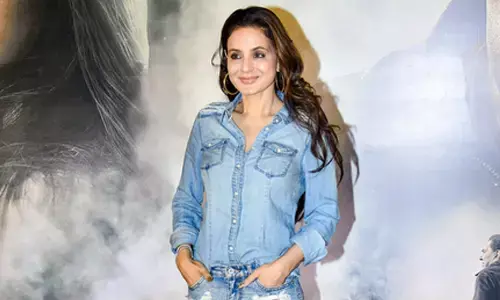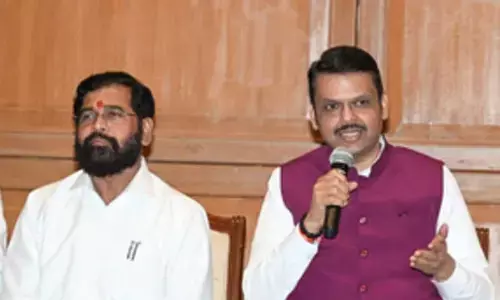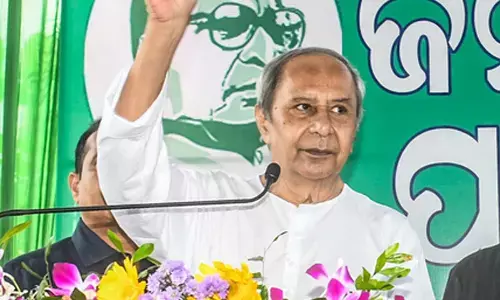Hindutva could undermine our Democracy

Former vice president Hamid Ansari on Tuesday termed Indias electoral democracy a success story but said there was apprehension that it could metamorphose into an illiberal democracy based on the principles of a sociopolitical philosophy called Hindutva He was speaking at the launch of his book
New Delhi: Former vice president Hamid Ansari on Tuesday termed India's electoral democracy a "success story" but said there was apprehension that it could metamorphose into an "illiberal" democracy based on the principles of a socio-political philosophy called Hindutva. He was speaking at the launch of his book.
Ansari said "correctives" were essential, and it was the duty of the citizens and of the civil society to raise questions. The book was launched here by former Chief Justice of India T S Thakur in the presence of former prime minister Manmohan Singh, CPM Secretary General Sitaram Yechury and a host of other leaders.
Ansari said he is concerned as a citizen about the contemporary debate in the country relating to three things-- the principles of the ideological foundations of India, what is the condition of the institutional structure by the Constitution, and the implications of these for the Indian democracy.
Talking about the book, he said, "Our electoral democracy is a success story, but it has not transformed itself into to a substantive, inclusive and participatory democracy."
There is apprehension that it could metamorphose itself into an "illiberal, ethnic democracy based on principles of a socio-political philosophy called Hindutva, whose core concepts circumscribe the ambit of citizenship."
Ansari said his approach to his book "Dare I Question? Reflections on Contemporary Challenges" has been spelt out in the preface and he has raised the question "What is it to be an Indian?"
"This takes us firstly to the meaning of nationalism in the context of India's plural society, our composite culture and the resultant need to be inclusive and move beyond mere tolerance to the acceptance of diversity as a civic virtue," he said.
Secularism in the Indian context means symmetric political treatment of different religious communities, defence of minority rights and prevention of bigotry, Ansari said.
Political democracy as B R Ambedkar said a long time back must be based on social democracy, he said, adding that dissent is of critical importance in an open society.
"There is an evident decline in adherence to rule of law norms and the efficacy of institutions --legislature, executive and judiciary. This has resulted in public disenchantment and is a matter of concern," Ansari said.
The book is a collection of his speeches and writings, made mostly in his last year in office and some in recent months.
"The pre-launch publicity given to the book by the media tends to suggest that it might contain some version of a 'kiss and tell tale', nothing could be further from truth," he said.














